Indications Contraindications Phases of crosslinking Prices Our advantages
 Corneal Collagen Crosslinking with Riboflavin (CXL) is an effective minimally invasive procedure used to treat a number of cornea pathologies, in particular, keratoconus, as well as some other diseases. This method was developed by professor T. Zeiler in the late 90's last century and has been used to treat patients with keratoconus and post keratectasia (a complication of laser vision correction). Currently corneal crosslinking technique also finds wide application in the treatment of various degenerative lesions of the cornea.
Corneal Collagen Crosslinking with Riboflavin (CXL) is an effective minimally invasive procedure used to treat a number of cornea pathologies, in particular, keratoconus, as well as some other diseases. This method was developed by professor T. Zeiler in the late 90's last century and has been used to treat patients with keratoconus and post keratectasia (a complication of laser vision correction). Currently corneal crosslinking technique also finds wide application in the treatment of various degenerative lesions of the cornea.
The mechanism and indications
Corneal crosslinking method is based on the ability of stromal collagen fibers of the cornea to undergo certain changes under the influence of some physical and chemical factors. It has been found that the combined effect of UV rays on the cornea in the presence of riboflavin (vitamin B2) causes a photopolymerization reaction of the collagen fibers, which leads to their sealing and improves the biomechanical features of the cornea.
In addition, riboflavin and ultraviolet rays have a decongestant and antibacterial effect. Because of these actions, currently the corneal crosslinking is being successfully used as an effective treatment for keratoconus and various degenerative pathologies of the cornea (keratopathy, corneal ulcers, Fuchs' dystrophy with pain, keratomalacia).
Stages of the procedure
Before the procedure, the patient eye is dropped with anesthetic. After the onset of anesthesia the doctor places blepharostat and via ophthalmic spatula carefully removes the top layer of the corneal epithelium (this is necessary to improve the penetration of vitamin B2 in the thickness of the cornea). Within 15 - 20 minutes, riboflavin is instilled into the eye, at the same time the doctor with a slit lamp examines the cornea and evaluates how evenly vitamin B2 impregnates the corneal tissue.
After reaching the desired degree of riboflavin solution saturation, the corneal tissue is being treated with low intensity ultraviolet light for 30 minutes, thereby avoiding damage to deeper structures positioned in the eyeball. Under the effect of ultraviolet, collagen fibers located in the cornea, are welded together to form a solid frame that is resistant to stretching.
At the end of the procedure to prevent inflammation antibacterial eye drops are instilled in the eye, after which the operated cornea surface is being protected with special therapeutic soft contact lens. Throughout the period of the cornea healing (average 3 - 5 days) the patient should wear a medical lens and use anti-inflammatory drops.
Contraindications
Corneal crosslinking procedure is not carried out to persons under 18 years of age. One of contraindications is also a small (less than 400 microns) thickness of the cornea in any of the measurements, inflammatory eye disease in the acute phase, decompensation of internal diseases (mainly related to cardiovascular disease or respiratory systems), mental illness. If you want to perform crosslinking on both eyeballs, the minimum break between operations is 3 months.
Complications after crosslinking
In most cases, the crosslinking forecast is favorable. At the same time as any invasive procedure, the procedure may have a number of complications, the latter generally are reversible. Possible complications include:
- temporary visual impairment (recovery of visual acuity is observed within 1 - 4 months after the procedure);
- reversible decrease in corneal transparency, does not affect visual acuity;
- slow-motion (up to 1 month) reduction of the corneal epithelium;
- redness and irritation of the eyes, in rare cases - development of keratitis;
- activation of herpes infection to the development of herpetic corneal lesions.
Benefits of corneal crosslinking in Moscow Eye Clinic
The favorable outcome of any medical manipulations is determined by a combination of several major factors, which include accurate diagnosis, selecting the most effective methods of treatment, highly skilled specialist, quality of management in the postoperative period. Each patient of Moscow Eye Clinic is guaranteed to receive all of the benefits.
By equipping the Clinic with the best examples of world manufacturers equipment, diagnostic inspection can detect any eye disease, it takes a compact period of time and is conducted in a comfortable environment. On the day of examination the patient receives the examination results with a breakdown of detected deviations and recommendations from your doctor.
In Moscow Eye Clinic you deal with the best city specialists. Treatment of corneal pathologies is handled by professor, doctor of medical science Slominsky Alexey Yurievich - one of the most respected national experts on the treatment of patients with different corneal pathologies (cataract, corneal dystrophy, keratitis), a recognized leader in the field of corneal transplantation in keratoconus.
Our clinic is open seven days a week, from 9am to 9pm without days-off. For the convenience of patients there is a day hospital in which every patient can receive the necessary assistance.

The cost of crosslinking
The cost of the procedure of corneal crosslinking in Moscow Eye Clinic is 30 000 rub. per eye. 30 000 руб. за один глаз. Prices for other health services in Moscow Eye Clinic can be found here.
You can ask our experts any questions you have by phone in Moscow: 8 (800) 777-38 81 and (499) 322-36-36 (daily from 9:00am to 9:00pm) or online by using appropriate form on the website.


 Semenovskaya
Semenovskaya 










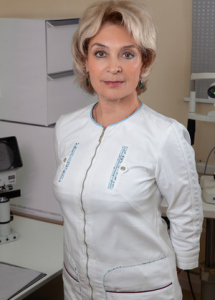

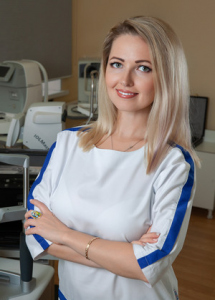


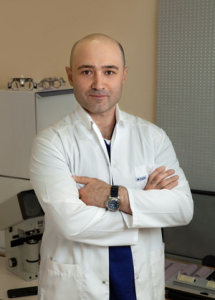

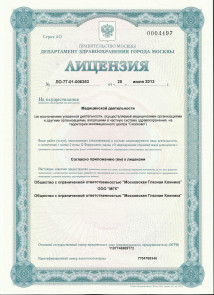
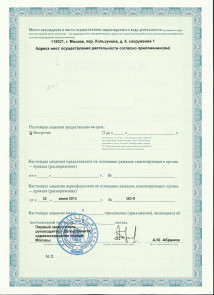
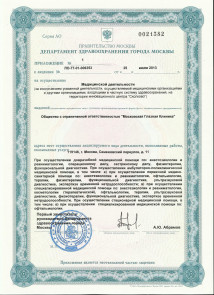
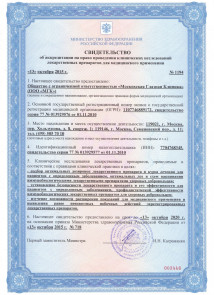
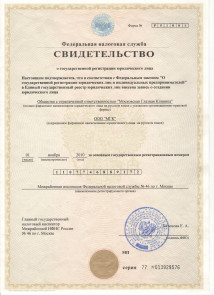
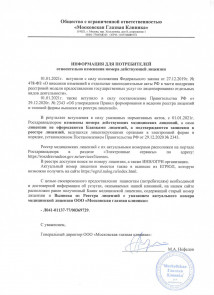

_214x295_ead.jpg)